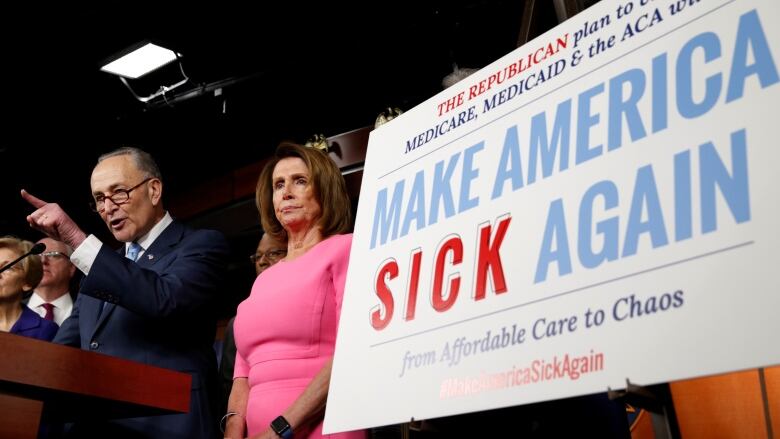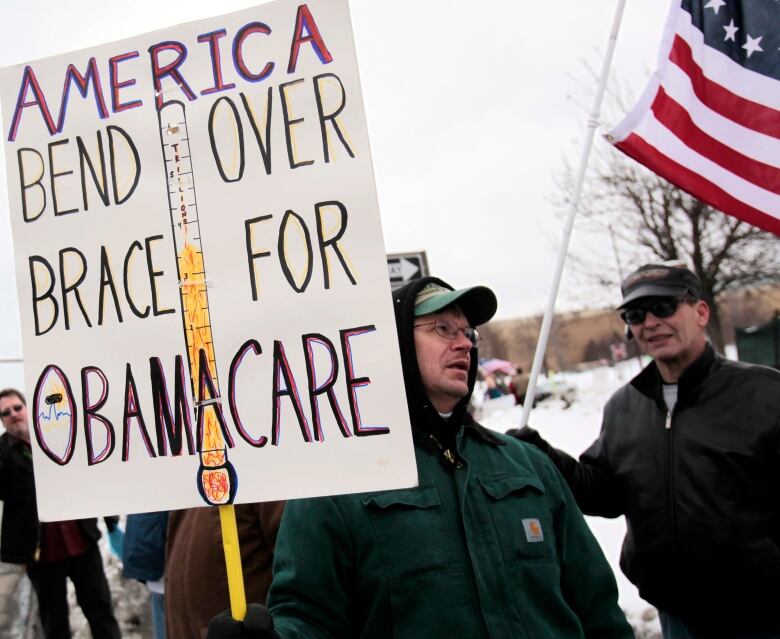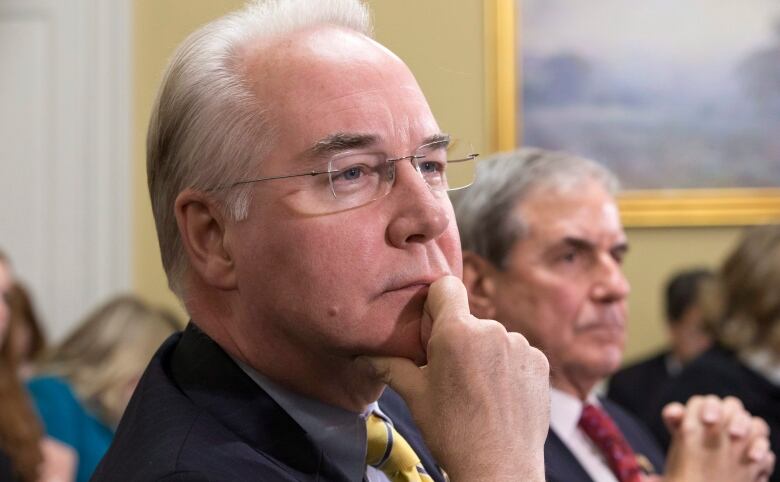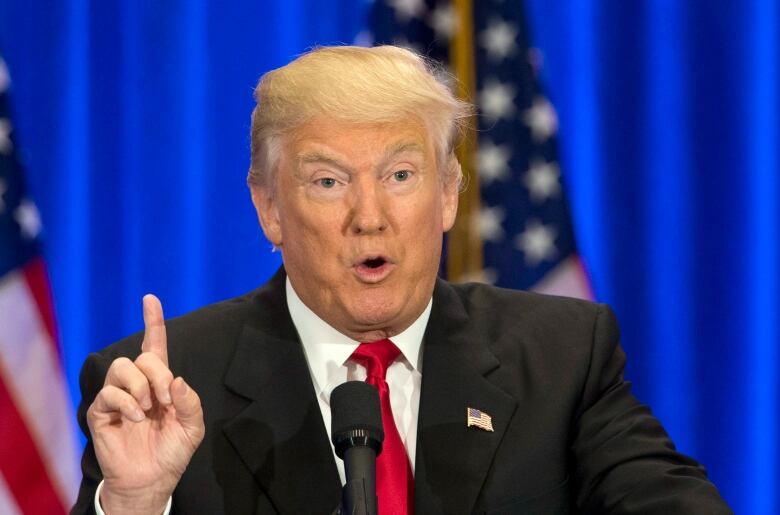Obamacare nears life support as Democrats enter last-gasp meetings to save it
What to know about the president's signature health law that Republicans have tried to repeal 60 times

"Make America Sick Again."
That's the new slogan being touted by Democrats on Capitol Hill this week as Senate minority leader Chuck Schumer and his progressive colleagues fight to save Obamacare from what they fear would be a national health care catastrophe in its absence.
Republicans despise the law so much they're already wrangling to put a repeal bill on the fast track as a first order of business in the 115th Congress. Devising a replacement policy that won't leave millions of Americans uninsured will be daunting, leading some to question whether it will be a case of RINO or repeal in name only.
- 'Asking the fox to guard the henhouse': Democrats decry Trump's top health-care pick
- What a Trump win means for U.S. health care
- VIDEOlTrump criticizes Canadian health care
Here's what to know about the controversial law.
What is Obamacare?
The Affordable Care Act, also known colloquially but not pejoratively as Obamacare, is a federally run insurance exchange. Marketplaces were set up so Americans lacking health insurance could shop for government-regulated health care plans that would cover standard and essential health benefits.
Uninsured citizens would also be able to check if they're eligible for a government subsidy.

Americans not only can buy insurance through this enrolment process, they must buy it orface a fine until they do,unless an exemption can be obtained. (The annual penalty in 2016 for uninsured Americans was $695 per adult.)
The ACA was passed by Congress and signed by Obama in 2010 as a way to expand health insurance coverage to more Americans. That includedbroadening Medicaid eligibility and boosting funding for the program, which covers low-income Americans.
Americans already happy with their Obamacare-compliant private health insurance couldstick with their current plans, renew them or ditch them for the marketplace.
How many people are on it?
As of February 2016, about 20 million people gained insurance either through signing up in the marketplace, benefiting from the Medicaid expansion, being allowed to stayon their parents' plan or through other provisions.
The Kaiser Family Foundation estimated at the end of 2015 that 28.5 million non-elderly Americans remain uninsured.
Why do Republicans oppose it?
Costs are part of it. Conservatives opposed to tax hikes object to the idea of Medicaid expansion and ofexchanges subsidizing insurance coverage for lower-income people at the expense of higher-income taxpayers.

Some young adults complained they felt forced to buy health careeven if they couldn't afford it.
Republicans embracing free-market principles also argue that the kind of uniformity and regulation baked into the health exchanges would suppress medical innovation.
- ANALYSIS | Trump health care pick Tom Price could kill Obamacare
- ANALYSIS | 'A rocky start': 115th Congress will be no cakewalk for Trump, Republicans
Conservatives have also blamed Obamacare for killing job growth by imposing costs on larger businesses.
The complexity of introducing major health insurance reform also made Obamacare an easy target, with the bill itself totalling 2,700 pages. Some users found the system confusing, andthe October 2013 rollout of the Healthcare.govstate-run websites were beset with glitches.
In late October, days before the 2016 presidential election, Obamacare was hit with another PR snafu when the White House announced that premiums were set to rise an average of 25 per cent across the 39 states served by the federally run online market.
Can the Republicans repeal Obamacare?

Yes. Especially with Republicans now in control of the levers of power in Congress and the White House.
A bid to have Obamacare declared unconstitutional failed in 2015, when the Supreme Court backed it in a 6-3 decision.
Republicans have also tried over 60 times since 2010 to repeal the law, to no avail. Last year, an effort to dismantle major parts of the law went all the way to Obama's office, though he unsurprisingly vetoed it. This time is different, now that Republican president-elect Donald Trump is at the desk.
How to replace the ACA could be complicated, however.
The president-elect, who campaigned vigorously on repealing and replacing Obamacare, somewhat softened his tone after a meeting with Obama shortly after winning the 2016 election. Trump said he favoured preserving two key pieces of the law, including a provision to allow adults up to 26 years old to remain on their parents' insurance policies, and a ban on allowing insurers to deny coverage for pre-existing conditions.
"I like those very much," Trump said of the two pillars.
What are the Republicans offering instead?
So far, there is no firm alternative, but Trump has nominated someone who has brought a concrete and detailed vision in the past.
Georgia congressman Tom Price, tapped to become the next Secretary of Health and Human Services, has proposed an Empowering Patients First Act that would have the federal government offer those without insurance a tax credit toward the cost of private insurance.

The credits would be granted based on age rather than income, which Democrats say could harm lower-income Americans. Price's program would also eliminate the expansion of Medicaid, which under Obamacare helped around 14 million poor Americans gain coverage.
When is this expected to happen?
The time line can't be so sudden as to leave millions of Americans an estimated 22 million, according to the nonpartisan Congressional Budget Office suddenly uninsuredand on their own if they wind up getting sick. Doing so would be politically ruinous.
Any repeal-and-replace transition would have to be gradual,over the course of two to four years. Or Republicans may take arepeal-and-delay approach until theydecide they have a more satisfying health care law option.












_(720p).jpg)


 OFFICIAL HD MUSIC VIDEO.jpg)
.jpg)



























































































